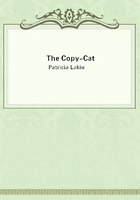
第14章 JOHNNY-IN-THE-WOODS(2)
That night when Johnny went into his aunt Janet's room she looked curiously at his face, which seemed a little strange to her. Johnny, since he had come into possession of his grandfather's watch, went every night, on his way to bed, to his aunt's room for the purpose of winding up that ancient timepiece, Janet having a firm impression that it might not be done properly unless under her super-vision. Johnny stood before his aunt and wound up the watch with its ponderous key, and she watched him.
"What have you been doing all day, John?" said she.
"Stayed in the house and -- read."
"What did you read, John?"
"A book."
"Do you mean to be impertinent, John?"
"No, ma'am," replied Johnny, and with perfect truth. He had not the slightest idea of the title of the book.
"What was the book?"
"A poetry book."
"Where did you find it?"
"In Uncle Jonathan's library."
"Poetry In Uncle Jonathan's library?" said Janet, in a mystified way. She had a general impression of Jonathan's library as of century-old preserves, altogether dried up and quite indistinguishable one from the other except by labels. Poetry she could not imagine as being there at all. Finally she thought of the early Victorians, and Spenser and Chaucer. The library might include them, but she had an idea that Spenser and Chaucer were not fit reading for a little boy. However, as she remem-bered Spenser and Chaucer, she doubted if Johnny could understand much of them. Probably he had gotten hold of an early Victorian, and she looked rather contemptuous.
"I don't think much of a boy like you reading poetry," said Janet. "Couldn't you find anything else to read?""No, ma'am." That also was truth. Johnny, before exploring his uncle's theological library, had peered at his father's old medical books and his mother's bookcases, which contained quite terrify-ing uniform editions of standard things written by women.
"I don't suppose there ARE many books written for boys," said Aunt Janet, reflectively.
"No, ma'am," said Johnny. He finished winding the watch, and gave, as was the custom, the key to Aunt Janet, lest he lose it.
"I will see if I cannot find some books of travels for you, John," said Janet. "I think travels would be good reading for a boy. Good night, John.""Good night. Aunt Janet," replied Johnny. His aunt never kissed him good night, which was one reason why he liked her.
On his way to bed he had to pass his mother's room, whose door stood open. She was busy writing at her desk. She glanced at Johnny.
"Are you going to bed?" said she.
"Yes, ma'am."
Johnny entered the room and let his mother kiss his forehead, parting his curly hair to do so. He loved his mother, but did not care at all to have her kiss him. He did not object, because he thought she liked to do it, and she was a woman, and it was a very little thing in which he could oblige her.
"Were you a good boy, and did you find a good book to read?" asked she.
"Yes, ma'am."
"What was the book?" Cora Trumbull inquired, absently, writing as she spoke.
"Poetry."
Cora laughed. " Poetry is odd for a boy," said she.
"You should have read a book of travels or history.
Good night, Johnny."
"Good night, mother."
Then Johnny met his father, smelling strongly of medicines, coming up from his study. But his father did not see him. And Johnny went to bed, having imbibed from that old tale of Robin Hood more of history and more knowledge of excursions into realms of old romance than his elders had ever known during much longer lives than his.
Johnny confided in nobody at first. His feeling nearly led him astray in the matter of Lily Jennings;he thought of her, for one sentimental minute, as Robin Hood's Maid Marion. Then he dismissed the idea peremptorily. Lily Jennings would simply laugh. He knew her. Moreover, she was a girl, and not to be trusted. Johnny felt the need of another boy who would be a kindred spirit; he wished for more than one boy. He wished for a following of heroic and lawless souls, even as Robin Hood's. But he could think of nobody, after con-siderable study, except one boy, younger than him-self. He was a beautiful little boy, whose mother had never allowed him to have his golden curls cut, although he had been in trousers for quite a while. However, the trousers were foolish, being knickerbockers, and accompanied by low socks, which revealed pretty, dimpled, babyish legs. The boy's name was Arnold Carruth, and that was against him, as being long, and his mother firm about al-lowing no nickname. Nicknames in any case were not allowed in the very exclusive private school which Johnny attended.